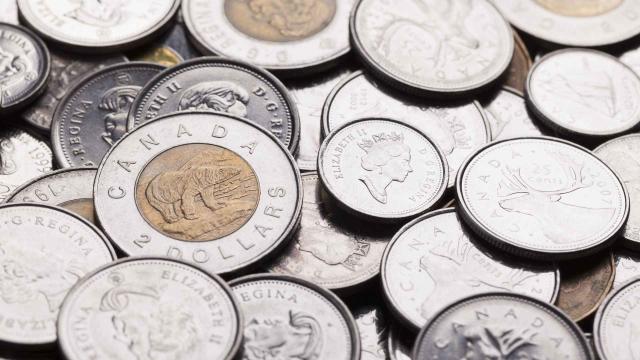
9 Documents To Have When Meeting Your Lawyer For Car Accidents
September 7, 2020Each year, about 6 million car accidents occur on American roads, injuring an estimated 3 million people. If you’ve sustained an injury due to an accident, one of the things you may want to do is file a claim for your damages and personal injury.
Before meeting your lawyer, you need to gather certain documents as evidence that the other driver was at fault. In this post, we highlight nine documents that can make your attorney’s work easier and boost the chances of a successful personal injury lawsuit or damages claim.
Read on to learn more.
Table of Contents
1. The Police Report
Following a car accident, the police will show up at the scene. They’ll draft an incident report that captures essential information about the accident.
A police report captures the police officer’s opinion of what caused the accident, as well as whether one or both drivers violated traffic rules. The report also features a sketch showing where other cars and pedestrians were at the accident scene.
Keep in mind that the police report might change as more evidence comes to light later during the discovery process. However, the report forms a foundation from where you and your car accident lawyer can start investigations.
2. Fines And Tickets Given At The Scene Of The Accident
If you were fined at the scene of the accident, you should let your lawyer know. For example, the police officer may issue you a ticket for driving under the influence (DUI), even if the accident wasn’t your fault. Your lawyer will need to review the ticket in addition to other details of the accident to show that you weren’t to blame for the accident.
3. Information Provided At The Scene
After the accident, both drivers exchange vital information at the accident scene. Generally, you and the other drivers will need to exchange names, telephone and license numbers, information regarding your cars, information about their insurer, and so on.
This information is vital in helping your attorney follow up with the other party and their insurance company once you’ve officially started the claims process.
4. Witness Statements
The police will need to collect statements from witnesses that they then include in their accident report. Witness statements can also be taken by insurance firms as well as other relevant parties.
If you can, record statements on your cellphone immediately following the accident and provide them to your lawyer. These statements are very beneficial in helping determine which party was to blame for the car accident.
5. Information About Your Auto Insurance Policy
Car accident attorneys need a copy of your insurance policy to know whether the policy is valid and what coverage you have. If you’ve been paying for car hauler insurance requirements, provide proof as well.
That evidence can be in the form of credit card statements, bank statements, receipts, or copies of the checks you sent to your insurance firm. With such evidence, your attorney can prove that your policy auto insurance policy is paid for.
6. Photos And Videos
Photographs and videos taken at the accident scene provide a clearer visual understanding of the extent of damage to your car. This visual evidence can be taken by the parties involved in the accident, first responders, insurance companies, tow truck drives, and the body shop where your car was repaired.
It’s also important to provide photos of your car accident injuries if you suffered any. Such evidence helps your lawyer understand more facts surrounding the collision. The insurance adjuster may also need this evidence when evaluating your claim.
7. Your Medicare Or Medicaid Card
Your health and safety come first, so you’ll want to commence treatment for any injuries you incur right away. If you use Medicare or Medicaid to pay that treatment, then they’ll have a lien for the settlement you receive from your claim.
So how does your lawyer determine whether or not your Medicare or Medicaid has a lien? You’ll need to present them with a copy of your Medicare or Medicaid card. With this information, your attorney can successfully negotiate any liens down, so you receive maximum compensation for your claim.
8. Medical Records
One of the top things you’ll be seeking compensation for is any medical bills you incur as a result of your personal injuries. Show medical records to your attorney, including all the copies of treatment records for psychological or psychiatric care.
Your attorney will review the medical records and determine the diagnosis and overall cost of treatment for your personal injuries. The records also reveal whether you had underlying medical conditions prior to the accident that could potentially undermine your claim.
What if you forgot to gather copies of the relevant medical records? Well, most attorneys should help you get them, as long as you provide them with the names and addresses of your medical providers. You’ll also need to provide written consent showing that you allow your attorney to access your medical records on your behalf.
9. Pay Records
Depending on the nature and severity of your injuries, you may have to take some time off from your business or job. Being absent from work can lead to loss of income, which calls for compensation from the at-fault party.
To help your lawyer determine the amount of compensation you are entitled to, have information related to lost wages in hand. This includes your most recent payroll records and tax returns. Seek any other financial documents that relate to your business or job.
When Meeting Your Lawyer, Bring The Necessary Information
A personal injury lawsuit or insurance claim can be complicated. However, a seasoned personal injury lawyer can help make things easier for you and improve your chances of fair compensation. Having the relevant documents in hand before meeting your lawyer is essential to building a strong case.
Would you like to read more great content regarding personal injury claims? Please keep visiting our blog for featured articles.












